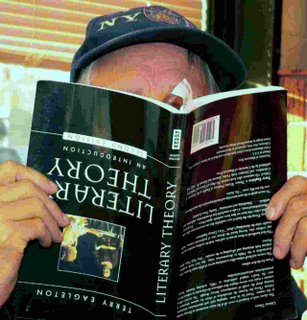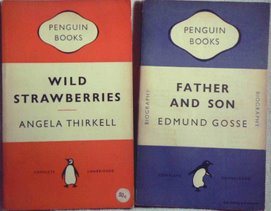An Open-Ended, Unending Rant on Used Book Selling
At an open-air flea market about 6 years ago, amongst my junk on a table I had a few books. paperbacks mostly if not entirely. I put a price of $15 on my copy of Naomi Klein's book "No Logo". I just knew I would get the price I asked, never mind what I paid for the book (probably at another flea market) myself. It sold for $15.
This summer, if I sell some junk there again, it will be pretty much the same routine, though my computer parts and peripherals probably won't sell as well as they did back in 2001. I'm not certain what the $15 paperbacks will be, maybe it will include a French-language copy of Yann Martel's novel Life of Pi.
What people will want most this year in Quebec is very different from what it was 5 or 6 years ago. At a flea market I have no problemo adapting. But, in a well stocked bookstore, I can see these changes in 'taste' presenting a very serious problem. (One sells 100s of diverse titles 'all at once,' so to speak.)
I remember from days spent in Chicago a period when there was a craze over every printed title about surrealism. Maybe it was local, probably not. I remember from Montreal entire knick-knack and lit boutiques devoted to New Age, to the Cabala and crystals and tarot cards and nuatl-whatever mythology. Folk music and disco were also in, then out.
I know, there still exists a solid-selling literature that includes Gabriel Garcia Marquez's 'One Hundred Years of Solitude'. I hope this bedrock lit also includes Cervantes's 'Don Quixote' but I forget. I believe Octavio Paz is out today and Carlos Fuentes is in, but I'll pass on that one as well.
The bookseller people who are specialised in one genre, say science fiction or, say, comic books, probably have a better handle on these changes in taste than I do or than most used book store owners as well. And these specialist dealers know which title & author ages so well so they pop that one straight into a Mylar baggy affair. I suspect that many of the mainline booksellers, however, operate on not much more than a hope and a prayer, plus lots of shelf room, when they decide to stock a particular book. Or do they just stock everything that comes their way?
Let us not underestimate the genius of SOME used booksellers to adjust to The Long Tail (the eternity of demand), their sensitivity to local preoccupations and who is or is not a celebrity, or their grasp of the world historical trends. But from looking at sellers closely, I seem to see an equal amount of plain old good luck, like when somebody dumps freebies on one bookseller's doorstep and that lot fetches hundreds of dollars the next day!
What this world needs is a good computer program, distributed widely to the trade we are discussing, that tells sellers what to do in lock-step with what will sell well. Barring this prescriptive, management-by-prediction, hardwired map, booksellers will remain hard done by. End of paragraph.
So far, despite my appeal for a software program to solve every body's problems, I have not said one word about the Internet. Nor am I going to. It's been discussed thoroughly enough, even though you wouldn't be able to read these line without it.
Bookseller are condemned to be "overstocked" when tastes change rapidly and dramatically. Not only would efficient operations require a guerrilla army of suppliers to stay in stock with what's HOT but efficiency would also demand a guerrilla army of disposers (if not buyers) to get rid of what is NOT HOT, what is in fact quite COLD.
Publishers used to dispose of their 'overstock' at a quarter to job-lotters in the remainders trade. (Now that they print less, I guess it's up to fifty cents per book.) The used book dealer, though, living life at the bottom of the food chain, cannot pass on his stagnant paper and board to an even lower bottom-feeding odd-lotter. Wishing it were so does not make it so, so sorry.
This is why I am skeptical regarding the long tail optimistic approach toward the hoarding of books. It is so much a case of the wish being father to the thought that it borders on being pathetic. Relying on the long tail finishes up with what I saw today on Bibliophile Bullpen: an engraved tombstone reading 'The one who has the most books at the end wins.'
My post is here not to offer solutions but to offer very subjective impressions, nothing more. Here are my subjective reactions regarding book hoards.
First: that the dealer has little discriminating judgement. The stock whatever gets tossed over the transom;
Second: that I should low-ball to get the absolute dirt-cheap price for what I would otherwise pay a premium for to own;
Third: that if the entire stock is not readily at my finger tips but is in the basement or behind glassed-in cases, that it is the bookseller who is trying to cheat me and not vice versa (which is how I'd rather it be);
Fourth: (this is the hard one) I feel real repugnance at seeing row after row of titles that were once my true 'flames' but with which I have had a bitter falling-out, viz certain unnamed conspiracy theories, New Age treatments of Atlantis or Nostradamus, recent books about 'Empire', true crime fiction of the poltergeist sort, etc., etc.
I do not intend my oh so subjective list to be a put-down of anyone (I could have used more judgemental language, but held back). I'm merely underscoring some of the dangers of trying to be everything to everyone. And I think that keeping everything from every reading craze threatens being slotted in the customer's mind with being nothing to nobody.
There is a bookseller friend of mine who stocks whole sections of books in Renaissance Literature. These are equal in shelf footage to her offerings in Esoterica as well as her stock in Communism. I take that back, if you include Religion, the esoterica far outweighs the Marxism et al. And the stuff on First Nations and Judaism tends toward the occult. I don't know where to place the vegan cookbooks: do they go with the political or the religious? In any case, this is definitely an 'alternative' bookstore. But the vast majority of her trade is in popular fiction, of which she stocks more than all the other categories combined! Need I add that financially her bookstore is in ruins!
You get the picture. The bookstore might do fine on a college campus, but, unfortunately, is located in a working class district with a 50%+ high school dropout rate. Go figure!
If I had a prescription to offer the owner of a bricks 'n' mortar bookstore it would be to not attempt being all things to all people: something that your customer base is not into. Or at least to have no more than two public faces, one for the carriage trade and intellectuals and another for the local market -- but have all your stock within easy view and arranged based the target market for the books. Classics and Philosophy do not mix well with popular snuff lit and Harlequin romances. If you hve to stock Readers' Digest Condensed to get by, just forget it all!
(This post has been edited to exclude from purview all the complications arising from doing any and all of the above in two languages simultaneously.)



1 comment:
Your rant makes lots of sense even without considering the internet. What it describes is what caused a string of bookstores in my area to open and then close within a couple years. The bohemian trade that started out buying enough books to pay the rent got more interested in music, photography, yoga, sculpute and other handson arts. They vanished from the bookstore to be replaced by unemployed women or workers with parttime jobs who had entirely different reading styles.
Post a Comment